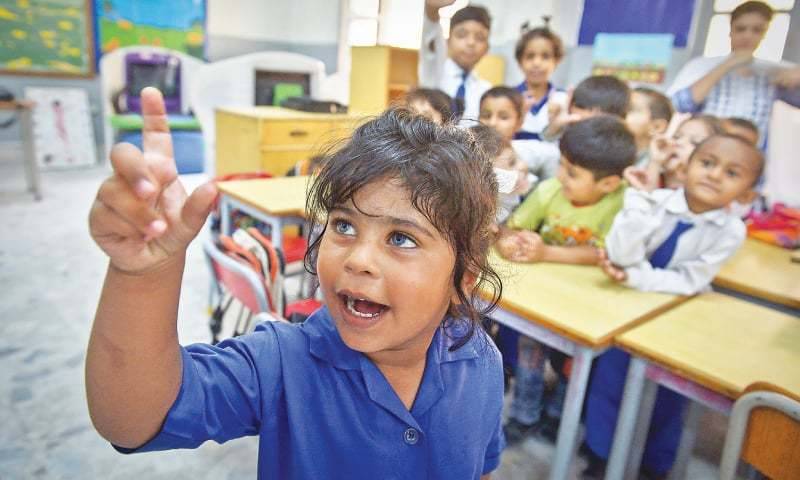Children, by all means, are the building stones of a nation and education is just like nectar for them. Education nourishes them, builds their thinking, enlightens their minds and makes them thoughtful, beneficial and civilised members of the community. Education is focal point for all sophisticated and developed countries as education is a matter of life and death for nations. But unfortunately some countries like Pakistan have a dilemma of long neglected education sector. However, as a result of Millennium Development Goals followed by Sustainable Development Goals, Pakistan invested heavily in education sector. As a result, according to the World Bank, government’s annual spending on education from 2000 to 2013 elevated from 3.9% of GDP to 4.74%.
Government established new schools, improved enrollment rates and provided infrastructure and facilities and also literacy rate enhanced over this period of time.
But the foremost matters of concern are not the buildings or other facilities, key issues are the quality of education, learning abilities and enlightenment of children’s minds for they are hopelessly on low row despite comparatively large government expenditure of education. According to ASER Report on education raking of 2016:
Only 18.7% of children in Sindh can read English sentences. This percentage makes it an alarming situation for governmental education departments and for NGOs whose tremendous work in the field of education is still unable to produce a learned primary school sector.
The main bone of contention is our education system and text syllabus. Our system is based only on cramming and high scoring. Students are indulged in mindless memorisation of facts and figures without availing the essence of concepts and knowledge. Our existing education system is that of colonial period which was indispensable for colonial masters to get enough labour and slave minds. On the other hands, our syllabus is set to glorify and adore only the past and snub critical thinking and logical reasoning. This syllabus brutally crushed the cognitive abilities of student and discourages culture of questioning.
Contemporary education system of the world trains students to question, to develop intellectual abilities and to develop problem solving approach. But Pakistan’s orthodox system of education stresses to accept and regard already established knowledge and framed ideas and discourages to challenge them. Pakistan is in a limbo of countless graduates with lack of curiosity and imaginative capacities that leads towards high rate of unemployment and frustration among youth. Furthermore the menace of extremism strengthens its roots in a society where illogical and blind following becomes a culture.
Education must shape the minds of children and develop their mental aptitudes as they are most precious national asset. It should also develop broadmindedness, patience, tolerance and respect for other’s views and beliefs in the society. High quality education is the thing that distinguishes nations and makes them superior.
Alike infrastructure, quality is equally, in fact predominantly, significant. teacher’s training is the key to higher quality of education. It’s a teacher who can indoctrinate innovation and curiosity into the minds of pupils. Government should focus on preparing skilled teachers, especially in public sector, provide them with handsome amount of income and polish their talent. More training programs, change in national text book syllabus, changes in exam and teaching styles and also overall improved system is the principle necessity of time. No doubt changing the grass root system is a time taking process, but great things and nation building always take time, need is to take the first step.






